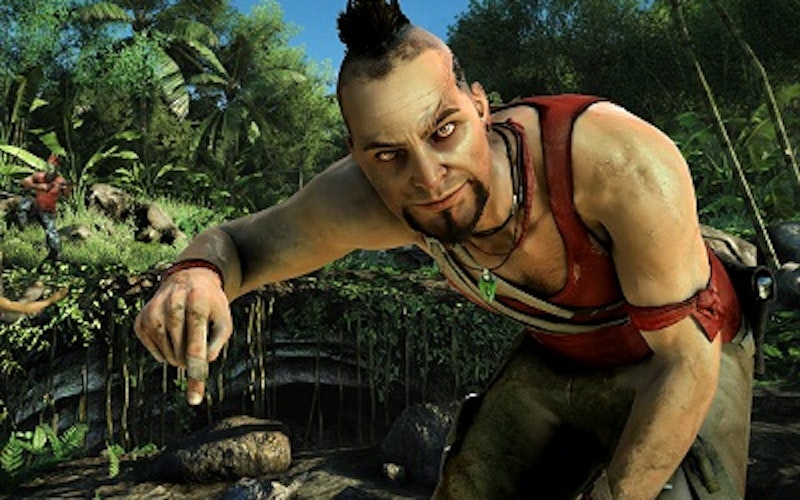
Games
The cumulative morality of Far Cry 3
I was a sophomore in high school when I first played a video game called Star Wars Jedi Knight: Dark Force Rises II. The game was significant because 1) it let me be a Jedi, which was as close to wish fulfillment for me as a game could get, and 2) It was the first game where the choices I made along the way shaped the outcome.
It was a pretty basic system: don’t kill innocent people and you stayed on the “light side” of the Force, do kill innocent people and turn into a Sith. I’d love to say this opportunity of moral agency led to an awakening that changed the course of my life ... but I was too busy unlocking cheat codes so my character could fly.
Since then I’ve played dozens of games with a “morality” component and each one boiled down to very clear right-or-wrong scenarios. While there might be tempting reasons to make the wrong choice, there’s no moral iffiness about what I’m doing.
This is what made Far Cry 3 such a unique and unsettling gaming experience.
The game features Jason Brody, an American tourist who ends up – along with his brothers and several friends - on an anonymous, gang-controlled island somewhere in the South Pacific. In the first 10 minutes of game play, Jason’s friends have been kidnapped, his brother has been shot and Jason is fleeing for his life.
This is a theme of the game as a whole: the ability of humanity to justify immorality.
The violence only escalates from there, as Jason trains to become an efficient killer with multiple weapons. Jason is initially a sensitive guy who questions the ethics of killing, even to rescue his friends, but over time he becomes progressively numb to the violence. The plot ultimately questions whether his motives are changing along the way. Is Jason becoming the same monster he is fighting?
But the game doesn’t leave the moral questions on the screen. Midway through the game Jason is using a flamethrower to burn down a field and he yells out, “This is awesome!” Eerily, I was thinking the same thing. It’s the first moment of many in which Far Cry shows a startling self-awareness; it knew the moments I as a gamer would love and in those moments asked, “Should you be enjoying this so much?”
This is a theme of the game as a whole: the ability of humanity to justify immorality. Much like Michael Corleone in The Godfather or Walter White in Breaking Bad, Far Cry’s Jason claims to be acting for the good of others, but he’s only fooling himself. Proverbs says “there’s a path that seems right to a man, but it ends in death.” This, it seems to me, is exactly how sin works: bad choices masked by seemingly justifiable reasons. And so if I lie, it’s not really lying but avoiding an awkward conversation. And my gossiping is really more like venting to someone I trust. In every temptation is a justification for why what I’m doing is OK.
But as Proverbs said, it all ends in death.
At the end of Far Cry there was a “right decision/wrong decision” moral choice, as there was in Jedi Knight. But what’s interesting - and different from any game I’ve played - is that regardless of what choice I made, there were consequences for my character’s previous actions. The possibility of redemption did exist, but as an ongoing struggle against my past choices. Morality then in Far Cry isn’t some “press ‘a’ for good or ‘b’ for bad” option, but a never-ending battle within the human soul.
Topics: Games, Culture At Large, Arts & Leisure